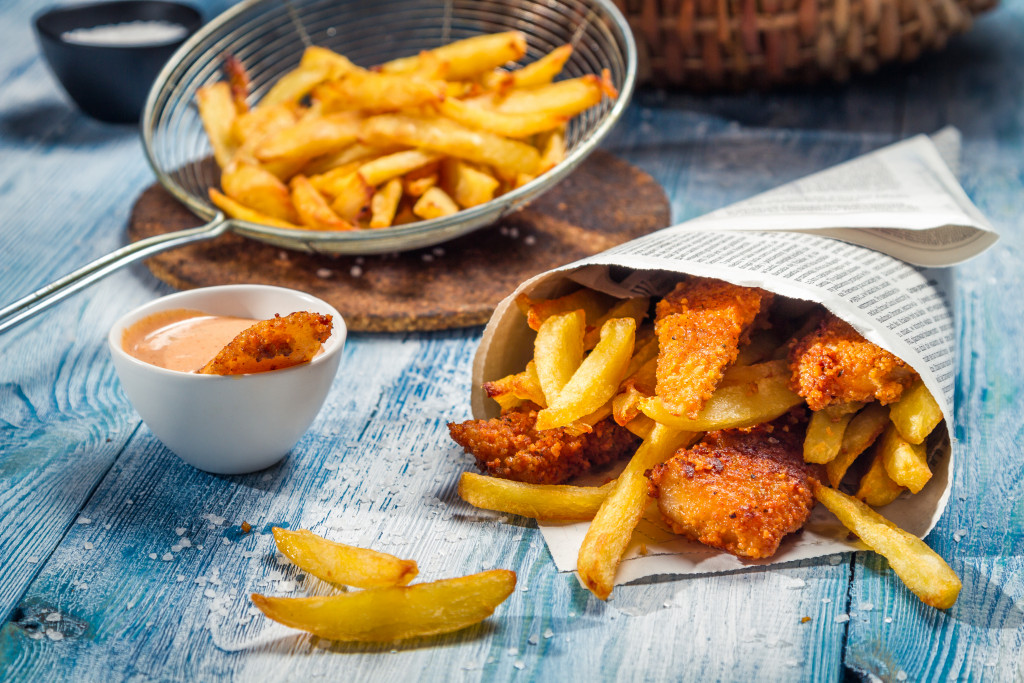Small businesses have been getting a boost from both the government and private sectors. They are getting provided incentives and initiatives and are even getting new loan opportunities to get them started.
One of the more popular small businesses to start are food-based businesses. After all, regardless of what happens to the economy from the pandemic’s ravages, people still need food and need to eat. Despite widespread worker shortage and lack of foot traffic that caused many restaurants to shutter, the reopening and recovery of industries have rejuvenated food businesses, especially small food-based businesses.
Enterprising small- and micro-business owners have begun starting their food businesses with relatively low capital and see success as more customers have emerged from the restrictions. The time is ripe to create your own food business and answer to the needs of a crowd hungry for life after lockdown.
Food-Based Small Business Ideas
-
An Ice Cream Truck
Ice cream is one of the world’s most beloved treats, sold in numerous variants worldwide. Best of all, it’s easy to make once you know the right way to do it. Even if you don’t, there are many suppliers that you can look up that can supply you with already prepared ice cream or ice cream-based treats. Some ice cream truck companies already bundle the supplies in with the truck rental if you choose to start a franchise that way.
Though sales may slow in the winter, people still eat ice cream during this season, and you can easily adjust with seasonal flavors to revive interest. Best still, you can sell ice as well—even people who don’t want to eat ice cream will want to buy ice for cold drinks at home, especially in the holiday season when parties are afoot.
Sanitation is another big challenge when you sell food that doesn’t get heated up to kill bacteria. Ice cream handles dairy and fruit, which are perishable and easy to spoil if not handled properly. Even if you sell something as simple as ice, cleanliness is critical, as you need clean water to make it.
When you buy the equipment for your shop or your truck, ensure that these machines are capable of remaining sterile. Check for equipment that has anti-microbial systems explicitly. For example, specific Scotsman ice machine parts are designed for sterilization, such as anti-microbial wands, that ensure the contents remain free of harmful bacteria. Equipment like these gives you peace of mind that what you serve is clean.
-
Start a Food Truck
In a world that needs food but can’t stay in restaurants for long, the food truck is an excellent opportunity to bring food to hungry customers while maintaining the safety of outdoor dining. And there won’t be any loitering either.
One of the most significant benefits of a food truck is that they’re very mobile. They don’t have to stay in one place, and they can proceed anywhere that people are available. And they have complete control of a menu that is easy to craft and modify depending on available ingredients.
The main challenge here is developing the truck itself, which will need to be substantially large enough to handle the cooking equipment that needs to go into it. Putting the vehicle together is where most of your capital will go. Your entire kitchen and service area is a mobile one, and it may take some customization to make it work depending on what you plan to serve.
After this, the next concern is zoning laws. Different towns and different cities will have varying regulations on where you can legally sell your food. Don’t forget to look them up before you start selling anything.
-
Open a Coffee Shop

Coffee shops are “transient” places—people don’t typically hang around for hours. They usually just come in to get their caffeine and leave. They’re very much in demand in metropolitan areas where there are large offices and universities as well. And coffee is popular regardless of the season, as they come in hot and iced variants.
You also don’t need a lot of capital to start up a coffee shop. Coffee is a straightforward process, with different levels for shots, milk, cream, and flavors. These make up the different varieties. Your capital is likely to be spent finding a good location (which doesn’t have to be very large) and the equipment to make the coffee.
There is a low bar of entry for a coffee shop—some of them start small, as a coffee kiosk near a business park or a cafeteria. And it’s a high-demand product (it’s expected to become a $155.64 billion industry by 2026), so there will be customers looking for a caffeine fix, especially during the mornings.
The challenge here is the same as the advantage: it’s prevalent, meaning you can find coffee just about anywhere. Why should they buy from your coffee kiosk or coffee shop? To solve this problem, you need to turn towards branding. Your coffee shop brand needs to present something a little different. Perhaps you have specific coffee-and-food combos so everyone can grab a quick breakfast bundle on the go. Maybe you have flavors others don’t have.
Whatever the case, carving a niche for your new coffee shop is essential, and building a rapport with customers is vital. Give them a reason to get their caffeine fix from your shop.

